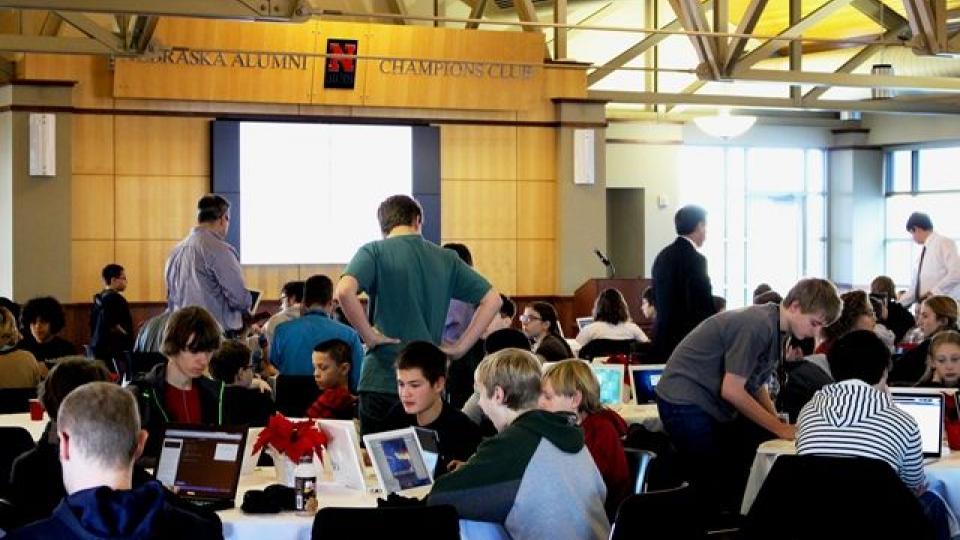
From laptops to smart phones and tablets, everyone depends on technology. Yet, computer science education in public schools is largely lacking: Just 10 percent of public schools offer any form of computer science education and only 5 percent of students learn it, according to code.org.
It was with this in mind that UNL computer science professors teamed with Lincoln Public Schools and local economic development officials to participate in the worldwide computer science education awareness project Hour of Code. The project was organized by code.org -- an initiative started by entrepreneurs Ali and Hadi Partovi to get U.S. schools to adopt more computer-science programs into their curriculum. It was held Dec. 12 during Computer Science Education Week, aimed to introduce computer coding to all ages in a fun way while raising awareness of the need for more schools to offer computer science education.
The efforts put Lincoln on the world map, with its participation numbers earning it the No. 15 spot among all cities worldwide. Rankings were based on number of active participants.
Leen-Kiat Soh, associate professor of computer science and engineering, and Charles Riedesel, assistant professor of practice in computer science and engineering, led UNL's efforts within the Hour of Code project and helped welcome 275 participants to the Champions Club. The event brought people of all ages, from second-graders to a man in his 80s, to campus to learn simple coding for an hour.
The local Computer Science Teachers Association chapter recruited students and supplied extra laptops for the event. Additionally, some LPS students also participated at their schools.
Soh said he was pleased with the ranking Lincoln received for its participation, because the event raised awareness of the need for top-notch computer science education.
"Computer science education at all levels should be promoted," he said. "K through 12 students here in Lincoln and Nebraska would benefit from more computer science courses to better prepare them for today's challenges and opportunities."
Soh said the crowd at the Champions Club seemed to be enjoying the project. Using an Angry Birds platform, participants wrote code to control the movements of their bird. Soh said he was impressed with platform developed during the event because it was “visually engaging” and gave participants instant feedback.
"For participants, I hope that it gave them three key messages: One, anyone can code, two, that coding is fun, and three, coding is important in problem solving," he said.
Written by Deann Gayman, University Communications